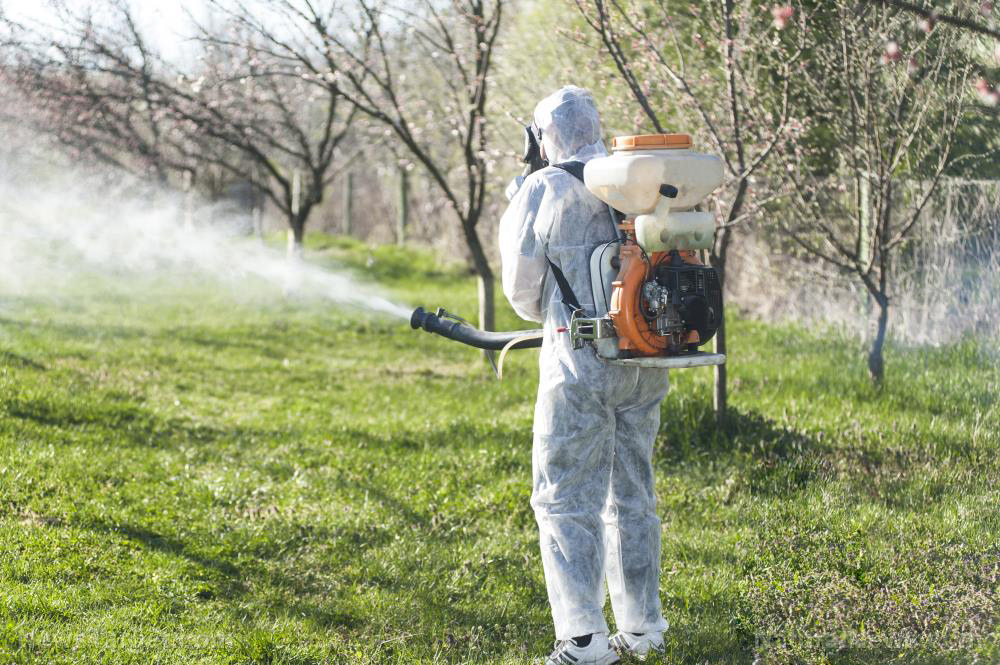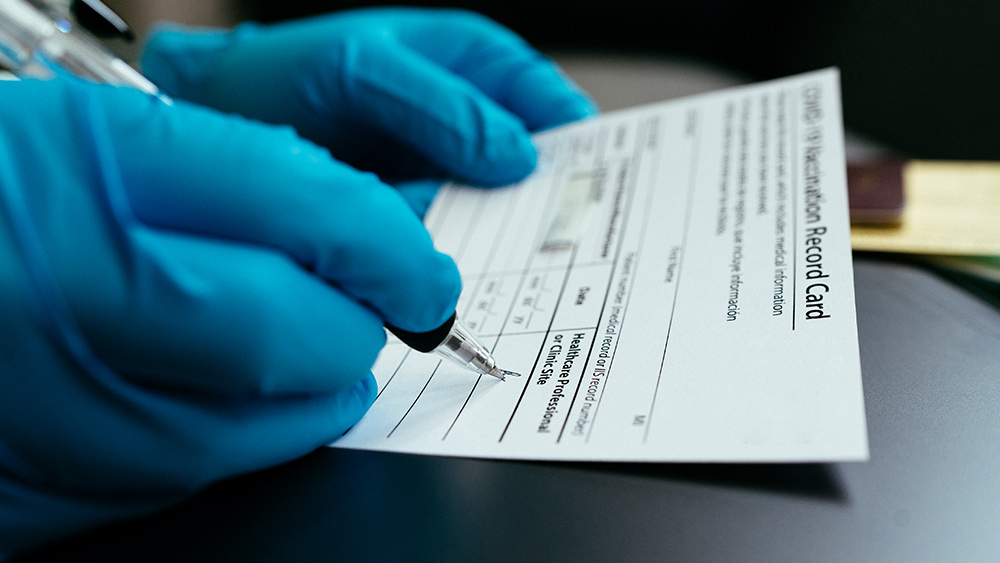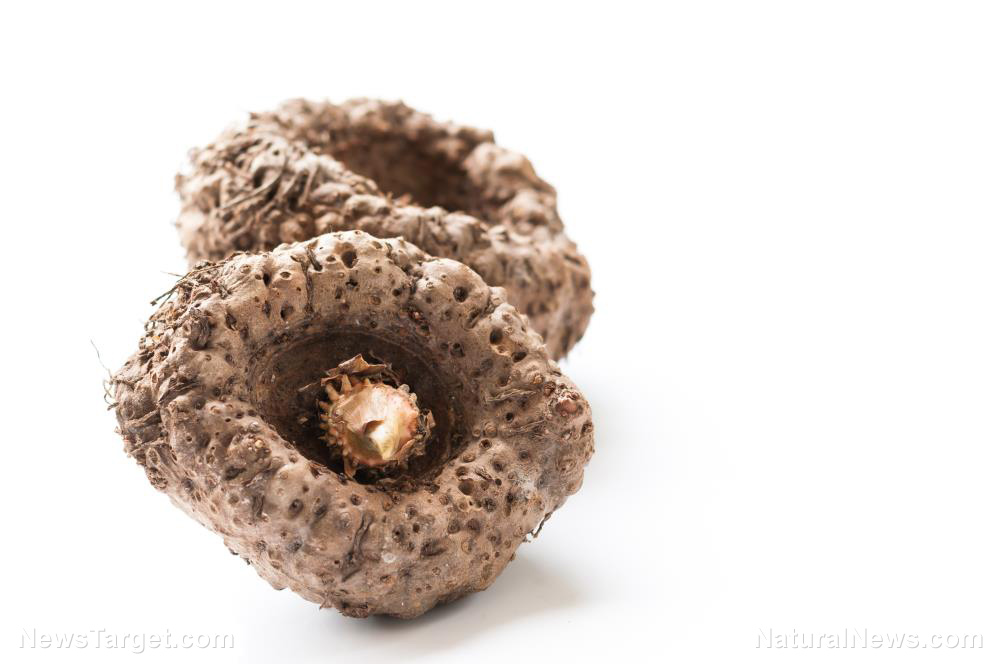9 Natural blood thinners you may already have at home
10/05/2023 / By Olivia Cook

Here is a list of potent natural blood thinners that you can add to your diet and wellness routine to improve blood circulation and prevent the development of life-threatening blood clots that can cause serious health conditions.
Cayenne pepper
Cayenne contains salicylate – a natural blood-thinning agent that’s valued for its anti-thrombosis effects. On top of that, it also contains capsaicin, which has been proven to possess lipid-lowering, anti-hypertensive, anti-diabetic and anti-obesity properties in several studies, as indicated in a study published in the Iranian Journal of Basic Medical Sciences. For these reasons, cayenne is often taken in capsule form to promote cardiovascular health and blood circulation.
Add cayenne pepper to stews and soups for a spicy flavor; sprinkle it sparingly on hard-boiled farm eggs; use a pinch to spice up cocoa or other chocolate goodies; or take cayenne pepper in capsule form after checking with your doctor.
Cassia
Cinnamon, especially cassia cinnamon, is rich in the aromatic organic phytochemical coumarin, a powerful anticoagulant that’s actually used to make warfarin (brand names Coumadin and Jantoven) – a prescription medication used to prevent harmful blood clots from forming or growing larger.
You’re better off adding cinnamon to your meals and beverages instead of taking cinnamon supplements for extended periods of time, which can be problematic – possibly leading to liver issues from increased coumarin consumption.
Use cinnamon in powder form in baked goods, cakes and drinks; combine whole or powdered cinnamon with other spices in savory dishes; or take cinnamon as capsules if your doctor advises it.

Garlic
A study published in Prostaglandins, Leukotrienes and Essential Fatty Acids found that consuming small amounts of garlic daily, especially fresh, raw garlic, could be beneficial in preventing thrombosis.
Allicin – one of garlic’s primary active components that give it its distinct taste and scent – and other garlic phytocompounds help keep blood clots from forming.
Add fresh or dried garlic in savory dishes; add freshly chopped garlic and olives to bread dough before baking; or take garlic as supplements if recommended by your doctor.
Ginger
Ginger is another anti-inflammatory spice that may help prevent blood clotting. A literature review published in the journal PLoS One noted that it prevents blood clots by reducing thromboxane, a hormone that causes platelets to aggregate or stick together and arterial constriction.
Like cayenne, ginger contains salicylate – a chemical that has been studied for its ability to prevent thrombosis, which occurs when a blood clot forms either in an artery or vein.
Note that there is research cautioning users who combine oral ginger supplements and warfarin so be sure to discuss this with your doctor before combining treatments.
Use fresh or dried ginger in sweet or savory dishes and baked goods; bruise, chop and steep it in water to make ginger tea; add it in juices and smoothies; or take ginger in capsule form after checking with your doctor.
Ginkgo biloba
Studies from around the world have demonstrated the potent anti-platelet properties of ginkgo, which inhibit platelet aggregation and thrombin activity. The present study published in Experimental and Clinical Cardiology showed that the fibrinolytic effects of ginkgo are comparable with those of streptokinase and may be of high therapeutic value.
The extract of ginkgo biloba leaves is available in supplements as tablets or capsules, but remember to first check with your doctor.
Green tea
Powerful antioxidants in green tea – especially one called epigallocatechin gallate (EGCG) – exhibit antiplatelet and anti-coagulation properties. One study on mice published in Food and Function showed that green tea catechins helped prevent platelet aggregation.
Because green tea is steamed tea leaf and not as processed as black or oolong teas, “you’re going to get a little more of the tea leaves’ health benefits,” says registered dietitian-nutritionist Grace Derocha, national spokesperson for the Academy of Nutrition and Dietetics.
Consuming green tea every day not only benefits your heart health but can help you lose weight and boost your cognitive function. Although green tea is very healthy for you, care should be taken if you have to take anti-coagulation medication.
Omega-3 fatty acid/fish oil
Taking omega-3 supplements can boost your cardiovascular health and help prevent blood from becoming too thick.
In a comparative study published in Arteriosclerosis, Thrombosis and Vascular Biology, researchers have found that, in animal studies, omega-3 fish oil prevents blood from coagulating too quickly. At the same time, omega-3 supplements help to lower cholesterol and improve blood health.
In case reports published in The Annals of Pharmacotherapy, researchers suggested that patients who take warfarin and omega-3 should be regularly monitored to check their blood health.
Turmeric
A study published in BMB Reports indicates that curcumin, the beneficial polyphenol in turmeric, inhibited thrombin – a protease that plays a role in blood coagulation. Researchers concluded that daily consumption of this curry spice may help maintain its natural anticoagulant status.
Add turmeric in savory dishes and soups; mix it with hot water to make tea; or take turmeric in capsule form after checking with your doctor.
Vitamin E
Studies, including one published in the Proceedings of the National Academy of Sciences (PNAS), support that vitamin E has anti-clotting activity and works as a potent blood thinner. (Related: Vitamin E supplements reduce risk of blood clots in women.)
Supplementing with vitamin E and consuming vitamin E-rich foods, such as avocados, almonds, broccoli, mango, spinach, sunflower seeds and whole grains, can help prevent diseases of the heart and blood vessels.
Head over to NaturalCures.news for more stories about natural remedies.
Watch the following video about 10 incredible foods that can help you avoid blood clots.
This video is from the Daily Videos channel on Brighteon.com.
More related stories:
Dark chocolate found to help prevent blood clots in Johns Hopkins study.
Blood clots: Everything you need to know (and ways to prevent them).
Health tips: 7 Ways to control your blood pressure.
Sources include:
Submit a correction >>
Tagged Under:
alternative medicine, Blood clots, blood thinners, cayenne pepper, cinnamon, Fish Oil, food cures, food is medicine, garlic, ginger, ginkgo biloba, Green tea, healing food, herbal medicine, Herbs, natural cures, natural health, natural medicine, omega 3, remedies, turmeric, vitamin E
This article may contain statements that reflect the opinion of the author




















